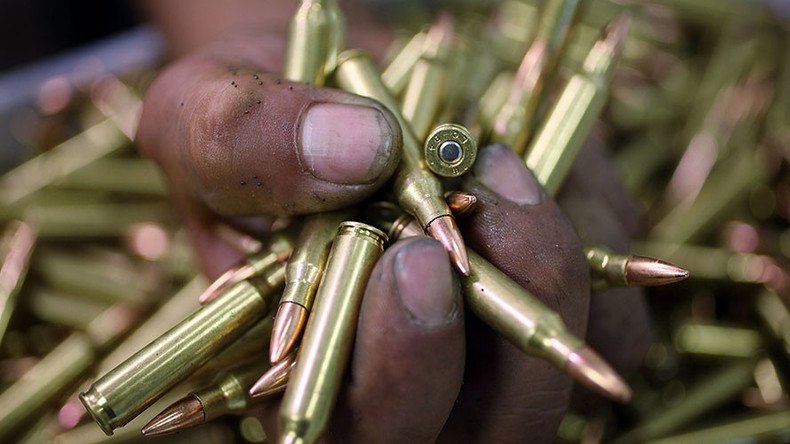ISIS’ Fallujah factories made rockets & ammo on ‘almost industrial scale’ – investigation

Islamic State has produced thousands of rockets and bombs in Fallujah, Iraq, running highly efficient and well-organized weapons factories, according to an investigation by a UK research organization.
The investigation by Conflict Armament Research (CAR) goes beyond common perceptions of the terror group that see it as a bunch of fanatics dependent on supplies from the outside world.
“Effective organization and a strict division of labor has allowed Islamic State forces to manufacture improvised weapons on a quasi-industrial scale,” CAR wrote in a report based on field investigations in Fallujah, re-taken from the Islamists in late June.
IS manufactured improvised weapons on an industrial scale in #Fallujahhttps://t.co/mtSdONHtK8#ISIS#Iraq#IEDpic.twitter.com/Uq7fkKuXQC
— CAR (@conflictarm) July 5, 2016
It says Islamic State (IS, formerly ISIS/ISIL) ran several workshops in the city, with some of them manufacturing “many thousands of weapons over a matter of months,” including “a range of improvised rockets and bombs to supplement its arsenal of military grade weapons.”
Large ISIS rocket factory discovered in Fallujah by ISF pic.twitter.com/gjKgTtUOGz
— BM-21 GRAD (@bm21_grad) July 2, 2016
“Recently abandoned machinery, component parts, and chemical precursors found in the Fallujah workshops indicate that IS forces engaged in large-scale improvised weapon production,” the paper noted.
These workshops were described as very sophisticated and able to produce complex weapons systems such as rocket-assisted munitions, “a process that involved machining warheads, rocket motor nozzles, and coupling screws.”
Fears radioactive material stolen in Iraq could be used for ‘dirty bomb’
Daily production of improvised weapons was strictly controlled by Islamic State’s so-called “Committee for Military Development and Production” that “coordinates labor and manufacturing capacity across a range of workshops.”
The production cycle was overseen by Islamic State “managers” who carefully registered the quantity and type of output in their written notes.
Documents: 2495 improvised rockets in one #Fallujah workshop bet Sep. 2015-May 2016 https://t.co/mtSdONHtK8#ISISpic.twitter.com/KfHaHht7xY
— CAR (@conflictarm) July 5, 2016
Notably, Islamic State’s research and development experts tested various types of weapons before large-scale production, the CAR report said, citing workshop papers found at one of the Islamists’ facilities in Fallujah.
The documents, along with other evidence, suggest “a sophisticated production chain, involving seven different workshops responsible for various stages of a weapon’s production,” the CAR report said. It also noted that similar IS factories were found earlier in the Iraqi cities of Kobane and Tikrit in 2015, and in Ramadi in 2016.
ISIS bomb & chemical weapons ‘research center’ in Mosul barely targeted in US strikes
Previous media reports suggested that Islamic State not only produced conventional arms but also developed weapons of mass destruction, including chemical munitions.
Islamic State itself has repeatedly claimed it has obtained a “dirty bomb,” but international experts say the chances of terror groups obtaining such weapons are slim.
“You can hardly say that the risks are zero, they use plutonium and cesium from hospitals and theoretically try to put such things together,” Hans Blix, the former head of the UN’s International Atomic Energy Agency, told RT in April.
“Yes, that’s bad… but the nuclear bombs are much worse.”












